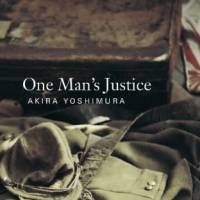To borrow historian John Dower's expression, the conflict in World War II between Japanese and American forces was a "war without mercy." The atrocities committed by Japanese forces are well documented, those by American military personnel less so.
In many Pacific islands the number of prisoners taken and held in custody was minimal, as low as 5 percent in some cases. Surrendering Japanese forces, waving white flags, were routinely machined gunned, the gold from their teeth removed and war trophies looted from bodies.
Akira Yoshimura's novel poses the almost insoluble question of why a man obliged to follow the orders of his superiors should be subjected to criminal proceedings by an occupying force responsible for the atrocities of Hiroshima and Nagasaki. Takuya, a disillusioned officer and the main character of the story, finds out that the Occupation forces have taken over his home village and are accelerating their search for suspected war criminals. Thus begins a journey through a demoralized country where children suffer from ringworm, women sell their bodies to make ends meet, and men such as Takuya are despised for the ruination they have brought down on their nation.
Yoshimura's descriptive passages and his concern for the plight of human beings trapped at ground level between two brutal forces bear the hallmark of the documentary filmmaker, and are among the achievements of a book that makes no attempt to mitigate the grimmer realities of the period.
Each week "Essentials" introduces a work of fiction that should be on the bookshelf of any Japanophile.

















With your current subscription plan you can comment on stories. However, before writing your first comment, please create a display name in the Profile section of your subscriber account page.